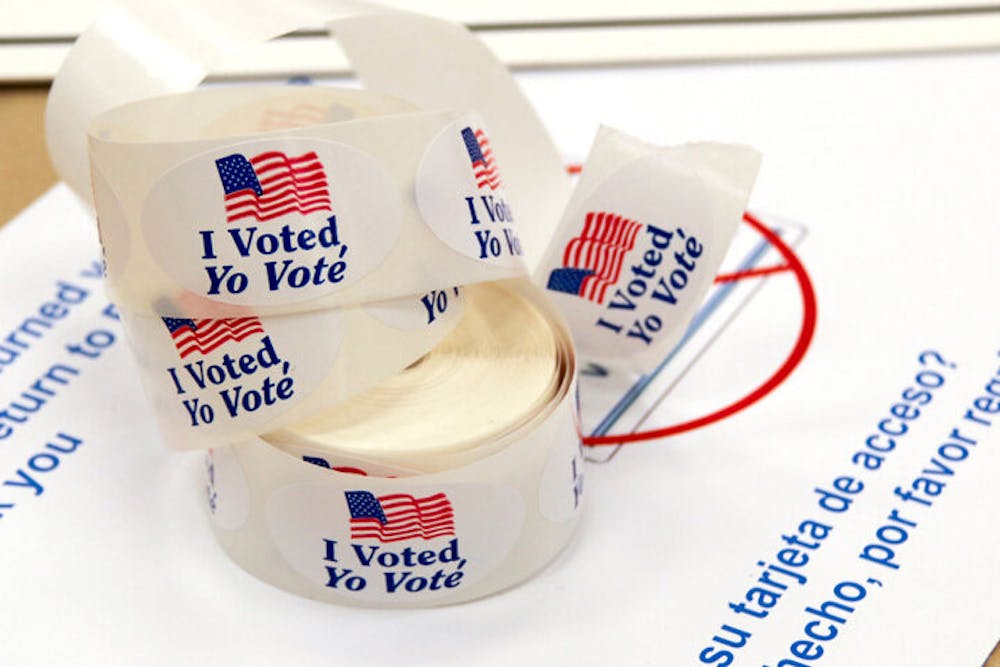IDEAL, a nonpartisan, student-run political organization, held a virtual panel on the role of grassroots organizations in the 2020 elections on Nov. 19. The webinar featured Monica Trejo, Arizona state director for Care in Action, and Melissa Walker, director of Giving Circles.
The conversation was especially focused on local governments and state legislatures, which Trejo and Walker characterized as an often overlooked but crucial part of the American political landscape.
Trejo highlighted the importance of identity in America and how one’s experiences and struggles greatly shape the voice they bring to the table. She described how grassroots organizations like Care in Action provide traditionally marginalized groups a platform to speak on issues that are most important to them.
She also discussed the organization’s unique approach to the 2020 campaigns, which included a focus on hiring first-generation college students and other low-propensity voters. Trejo stated that reaching out to groups of people that have historically been ignored or undervalued in the American political conversation has inspired minorities to come out to the polls and vote.
According to Trejo, the pandemic posed a significant challenge to the way grassroots organizations typically reach out to voters. Instead of knocking on doors, Care in Action turned to contactless methods, such as mail and telephone.
“There are a lot of different ways we can stay involved, and this pandemic has given us more flexibility, honestly. You can be more involved in places that you couldn’t be before,” she said.
Trejo also described the impact of social media on modern political campaigns, commenting that technology has allowed candidates to be more direct and accessible to their constituents. However, she noted that it has also created more polarization and division between parties.
One of Care in Action’s central missions is supporting domestic workers, most of whom are women of color and immigrants that have been particularly impacted by COVID-19 due to unemployment. According to Trejo, Care in Action was able to raise millions of dollars for a COVID-19 care fund, which helped domestic workers across the country make ends meet.
Walker explained that Giving Circles, as part of the organization Future Now, focuses heavily on state legislatures and shifting the present power dynamics. As a district-first organization, Giving Circles chose to focus on areas and zones instead of individual candidates.
Walker believes that, in order to shift the placement of power across the U.S., people must determine which states have the greatest potential to flip representative seats and, in particular, which districts can play the most valuable role.
“Some of the metrics that our research team uses include things like, ‘Are there districts where Hillary Clinton won or Obama won that still have a Republican state representative or state senator?’ We work in those districts to make sure that state legislative candidates have fully-funded campaigns,” she said.
She also explored the relationship between American constituents and their representatives. According to Walker, Giving Circles encourages candidates to get to know the citizens in their district in order to understand the issues they truly care about. However, Walker argued that this strategy has become more difficult in the pandemic since there are limited opportunities for face-to-face communication.
She emphasized that democracy is a long fight that Americans must tend to year after year before real results occur and change is achieved.
“Sometimes we are really addicted to fast wins and single-cycle victories, and when it doesn’t work out, people lose their will to keep involved, and that is a real shame,” she said.
In an interview with The News-Letter, senior Mickey Sloat, president of IDEAL, stated that she enjoyed the event’s focus on local politics.
“Much of our focus nowadays is on federal elections, and state and local politics are overlooked when these elections arguably make a larger difference in our day to day lives. Similarly, much attention is paid to candidates and much less to the groups that support them,” she said.
Nonprofits and grassroots organizations such as Care in Action and Giving Circles, Sloat said, play a crucial role in politics.
“Grassroots organizations are the backbone of elections,” she said. “The chance to engage with these organizers and learn how they made change was not only insightful but inspiring regardless of political affiliation, and I am glad to have hosted this event as IDEAL.”





